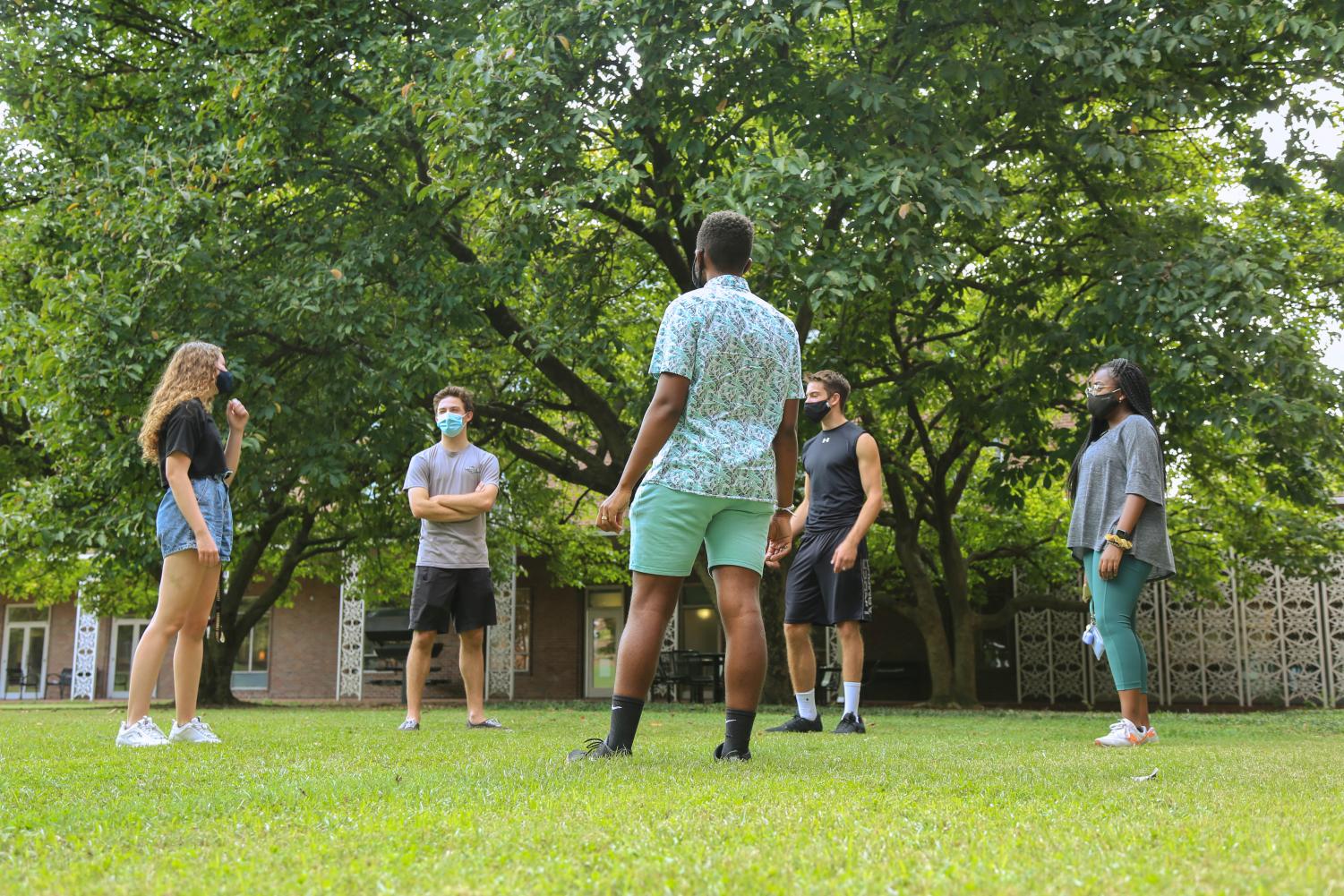
In many ways, complaining can serve as a mode of discussion that paves the way for shared human connection. For Generation Z especially, venting is a viable vehicle for bonding.
Welcome to my column! My name is Nashely, and I’m a sophomore majoring in economics and history with a minor in mathematics. I’ll be using this column, Generation on the Rise, as a space to explore and discuss different cultural phenomena that are relevant to our demographic as college students and members of Generation Z. How do we interact with the world set before us, and how will we make lasting contributions to society? I hope you’ll join me as I seek to engage with these questions and many more. Today, however, we’ll be focusing on one interaction in particular: the art of complaining.
In the spring of my junior year at boarding school, amidst the general anxiety of college counseling, ACT prep and teenage angst, the season of Lent approached much too quickly for me to process. Two days before the holiday season began, I hadn’t yet decided what to sacrifice to mark the beginning of this period of self-reflection, and I was running out of time.
Lent, for those unaware, is the 40-day period preceding Easter during which many Christians and Catholics refrain from eating certain foods while also “giving up” a chosen activity. I like to think of Lent as a chance to revisit forgotten New Year’s Resolutions in a context of generally higher stakes. In January, dipping your hand in the cookie jar a few days after your vow to “be more healthy” does nothing more than generate a slight pang of self-disappointment. Due to the obvious religious connotation, abandoning your Lenten promises typically feels more consequential.
In 2018, I decided that I wanted to make an unconventional sacrifice, distinct from the typical 40-day sugar-free diet. I scoured my brain for plausible options: gossiping, sarcasm, swearing. Though each idea served as a worthy contender, no option resonated with me quite so intensely as one: complaining.
I had settled on the idea one cold February night, and the following morning I strolled into the dining hall confidently, more than a little self-righteous, and presented the idea to my friends. They quickly offered words of encouragement and smiling faces, but I immediately recognized their disingenuity. Though they gave their support and kind words, I knew that deep down, they were simply waiting to comfort me in the inevitable aftermath of failure.
I’d love nothing more than to be able to say that I proved them wrong, but while I may be a chronic complainer, I’m no liar.
In the last few months, I must confess that I’ve been doing a lot of complaining: most frequently about COVID, Zoom and masks. And while I recognize that complaining might seem like a futile and inadequate response to events I can’t control, I don’t really want to stop. Complaining, in many instances, feels good, and despite our societal preoccupation with negativity, suppressing our anger and sadness to manufacture inauthentic positivity can actually have more detrimental effects. Toxic positivity is real, pervasive and prevalent, and in order to counteract it, we must choose to validate and accept our feelings by giving ourselves a medium for expression. One such medium is complaining.
In many ways, complaining can serve as a mode of discussion that paves the way for shared human connection. For Generation Z especially, venting is a viable vehicle for bonding. We gather at trendy coffee shops not merely to snap aesthetically pleasing photos but also to open ourselves up to each other and share our hardships or sources of frustration. We create memes and share videos on TikTok, ranting about the injustices and woes of our daily lives. We develop a unique flavor of sarcasm and dry humor to establish reciprocity between ourselves and others, thereby forming common ground. Ultimately, finding the “right way” to air our grievances can have positive long-term effects, giving us the tools to process and organize negative emotions and experiences.
That being said, excessive complaining does have the potential to hurt us in the long run. Co-rumination, for example, is the process by which we continually and extensively discuss problematic situations and negative feelings with friends. Co-rumination can occur if during the aforementioned coffee date, we choose to move from one bad topic to another, never pausing to recognize the positives in our lives. While complaining can be cathartic, we must be aware of the potential for excess.
And more often than not, we are. No one wants to be that friend who just won’t stop complaining, so we make an effort to censor our dangerous proclivities. While I might start a meal by bashing the driver who cut me off on my way to the café, I’ll have put my anger to rest long before the arrival of the check.
In the end, I’ve come to realize that I couldn’t stop grumbling and bellyaching in 2018 because complaining is an indispensable aspect of our lives that can offer us emotional release and mental well-being. We complain to unload ourselves from the stress and frustration in our lives. We complain to share our experiences with friends. And in 2020, we complain to process the unique contours of a global pandemic.
As members of Generation Z, we might have never imagined that this is what our 20s would look like, but while we’ve been stripped of our right to gather in large places, nothing can stop us from sharing our woes with all who are willing to hear.



